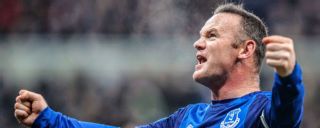|
The first thought on hearing that Wayne Rooney has signed with D.C. United is: "There's 32, and then there's 32." Rooney has looked his age for some time now. While he was never much of a natural athlete even as a 16-year-old man-child, Rooney is now twice as old as he was in that moment he burst onto the scene for Everton, and he has played a lot of soccer in the interim. Other players have made successful jumps to MLS at this age. David Beckham, Thierry Henry and David Villa all arrived in the U.S. at a stage of their careers that, for a while, stood as the league's sweet spot for such moves. That trio stayed fit long enough to build teams around, for enough time to implicate themselves in the fortunes of their team in a way that the stays of older players like Steven Gerrard, Didier Drogba, Andrea Pirlo and, yes, Zlatan Ibrahimovic were never designed to do. The paradigm for influential signings has shifted towards an ideal of persuading credible world-class players like Sebastian Giovinco and Carlos Vela to sign in their prime (around 28 years old), but the right elite player signing at Rooney's age can still be the cornerstone of a franchise. But those players tend to be naturally curious, like Henry, or naturally industrious leaders by example, like Villa. Or well traveled from an early age, like Robbie Keane, who was at Inter when he was 20 and never looked fazed by a nomadic career. Rooney has spent his entire career along a 34-mile stretch of the M62, and always looked more comfortable provincially than a born globalist like Beckham. Nobody's ever doubted Rooney's eye for goal or the sheer force of will he's applied to games at his most influential. At times, that lack of a naturally athletic physique only emphasizes his abilities. Watching him take off for that infamous overhead kick goal against Manchester City felt less like a flash of skill from a flair player than witnessing an act of sheer will overpowering gravity in an instant. Rooney will need plenty such will to overcome the physical realities of MLS, too. When he arrives in July, he'll at least avoid the worst rigors of travel owing to D.C.'s backlog of home games at its new stadium. But Washington, D.C., is built on a swamp and summer home games will be as testing, and humid, as any trips to Dallas or Houston. Maybe Rooney will thrive under the challenge and shape a new destiny at this stage of his career. Maybe. But he has always appeared to have an insecure side that needs public validation, in a way that might complicate that prospect. Since he was a teenager, Rooney's moves -- or potential moves -- have typically been accompanied with speculation of how his current or prospective manager might see him. No professional player, let alone one who has functioned at the elite level of Rooney, should have problems self-motivating but the reality is that after the initial novelty of his arrival wears off, Rooney will face a grind, in relative anonymity, to help drag D.C. United back to competitive and market relevance. Will his appetite be there? From being the league's first powerhouse team, D.C. United has been on a slow slide for years now. Coach Ben Olsen has had the difficult task of trying to nurse a succession of moneyball teams along in anticipation of the club finally getting its own stadium this summer, and being sold to a new billionaire owner, and notionally relaunching. They're currently last in the Eastern Conference with 10 points from 12 games and will need Rooney to produce immediately. In the best-case scenario, Rooney could be the fuel for that relaunch, a statement of intent that starts the countdown. In that version of events, his will-to-power meshes perfectly with the scrappy virtues the club has embraced in the past decade and both parties enhance the virtues of the other. In the worst-case scenario, he's a spent force that serves as a walking metaphor for what D.C. United has become. Rooney has to do more than grace D.C. with his presence. His presence has to be transcendent. Chronologically, he has time. But there's 32, and then there's 32.
|

